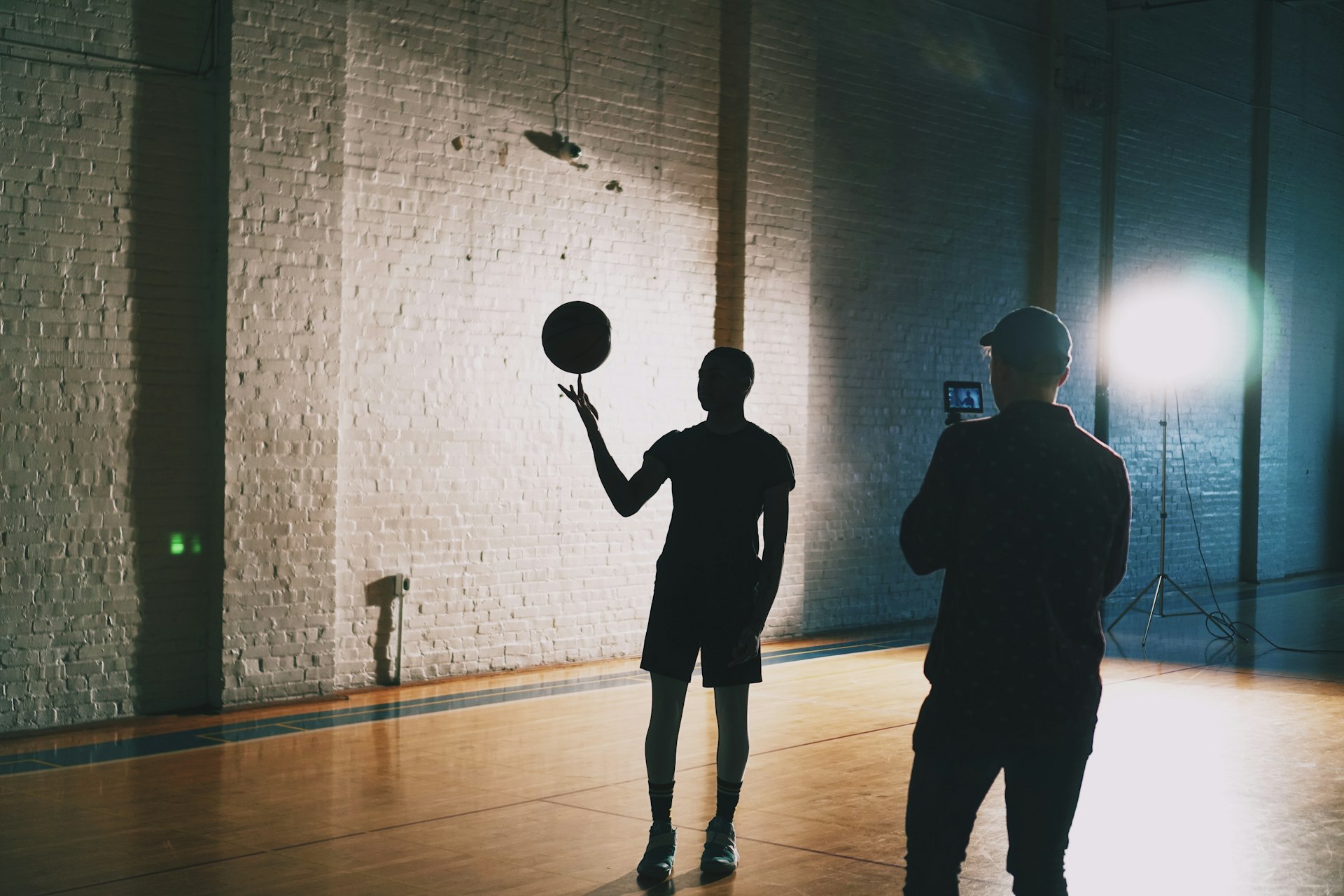AI-Powered Storytelling: The Next Frontier in Sports Media

Photo by Aron Yigin on Unsplash
Introduction: The Dawn of AI in Sports Storytelling
Artificial intelligence is quickly becoming a foundational force in sports media. From automating content distribution to crafting personalized narratives, AI-powered storytelling is reshaping how fans engage with their favorite teams, athletes, and competitions. As this technology matures, it promises to expand access, deepen emotional connections, and create new revenue streams for sports organizations and media companies alike. This article explores the concrete ways AI is transforming sports storytelling, provides actionable guidance on leveraging these technologies, and offers real-world examples, potential challenges, and solutions [1] .
Personalization and Automated Broadcasting
One of the most significant impacts of AI in sports media is its ability to personalize fan experiences and automate broadcasting. AI analyzes vast amounts of data-including fan behavior, historical records, and social media trends-to deliver tailored content. For example, during live broadcasts, AI can instantly surface relevant historical parallels and statistics, enriching commentary. This enables broadcasters to cater to individual preferences, offering custom highlight reels, recommended stories, and interactive features that drive deeper engagement [1] .

Photo by Markus Winkler on Unsplash
To implement AI personalization, organizations can:
- Integrate machine learning tools for real-time data analysis and content recommendation.
- Deploy AI-driven content management systems that adapt to viewer preferences.
- Use AI co-hosts for studio shows, providing instant analysis and engaging banter based on decades of sports trivia and data.
Alternative approaches include combining AI-powered tools with human editors to curate the most compelling narratives and interview segments. The key is to balance automated efficiency with authentic, emotionally resonant storytelling created by expert journalists and commentators [1] .
Expanding Reach: Niche Sports and Global Audiences
AI is democratizing sports media by making coverage of niche sports and global events more feasible and cost-effective. Automated content generation allows even small tournaments to offer full match reports, highlight videos, and commentary in multiple languages, serving passionate fan communities worldwide [2] .
Practical steps to harness AI for broader reach include:
- Leveraging AI-powered translation tools for real-time multilingual commentary and captions.
- Utilizing smart video indexing to automatically generate and distribute highlights across platforms.
- Analyzing viewership and social media data to identify new fan segments and optimize monetization strategies.
For organizations seeking to expand globally, consider collaborating with established AI vendors or exploring open-source platforms that support automated localization and content distribution. Many leading sports leagues now use AI for audience analytics and targeted marketing, helping them uncover and engage previously overlooked fanbases [2] .
Real-Time Insights and Enhanced Production
AI is revolutionizing sports production by providing real-time match insights , performance analytics, and automated highlight generation. Tools like Genius IQ employ optical tracking and predictive modeling using standard smartphones, making advanced analytics accessible without expensive hardware investments [3] .
To incorporate real-time AI insights, sports media teams can:
- Install affordable video capture devices at venues and feed footage into AI models for instant analysis.
- Use AI for automated officiating, data-driven graphics, and second-screen experiences that engage fans during live events.
- Adopt semi-automated workflows where AI collects and processes data, while humans oversee storytelling and creative direction.
Challenges may include the need for robust data security, system integration with legacy equipment, and ensuring that AI outputs remain accurate and unbiased. Solutions include regular auditing of AI models, ongoing staff training, and maintaining a collaborative workflow between human experts and automated systems [3] .
Interactive and Immersive Storytelling
AI is enabling more interactive and immersive storytelling in sports media. By integrating AI with virtual and augmented reality technologies, content creators can produce dynamic narratives that evolve in real-time. For example, branching storylines in gaming adapt to user choices, while predictive modeling in film and TV refines scripts and character development [4] .
To create immersive experiences:
- Combine AI-powered writing tools with VR/AR platforms to produce adaptive multimedia stories.
- Implement AI-driven animation and effects for instant visual storytelling.
- Explore partnerships with gaming companies and filmmakers to integrate sports narratives into interactive formats.
Alternatives include using AI for personalized fan engagement via chatbots, social media, and mobile apps. These approaches enable fans to interact with stories, receive tailored content, and participate in virtual events, driving ongoing loyalty and monetization [4] .
Ethical Considerations and Human-AI Collaboration
As AI becomes more central to sports storytelling, ethical considerations-such as data privacy, bias mitigation, and the preservation of human creativity-must be addressed. Industry experts agree that the best outcomes arise from human-AI collaboration, where machines handle data crunching and production tasks while humans provide creative analysis and emotional resonance [1] .
To navigate these challenges:
- Establish clear guidelines for data usage, consent, and transparency.
- Regularly evaluate AI outputs for fairness and accuracy.
- Invest in ongoing training for creators to maximize the benefits of AI while maintaining editorial standards.
Industry organizations and regulatory bodies may offer resources and guidance on ethical AI practices. For more information, consider searching terms like “AI ethics in sports media” or visiting official industry association websites for best-practice frameworks.
Accessing AI Tools and Opportunities
For sports media professionals and organizations interested in adopting AI-powered storytelling, there are several practical steps:
- Research established AI vendors specializing in sports media, such as Genius Sports and other industry leaders.
- Explore open-source AI frameworks and platforms for custom development.
- Participate in industry webinars, workshops, and certification programs focused on AI integration in media production.
If you are seeking specific guidance, you can:
- Contact your sport’s governing body or media association for recommended technology partners.
- Search for “AI sports media tools” and review case studies and product demos from verified companies.
- Reach out to professional organizations via their official websites or public contact information for expert advice.
Remember, AI adoption should be approached as a collaborative process-start with pilot projects, scale successful initiatives, and continuously monitor outcomes for effectiveness and audience impact.
Key Takeaways and Future Outlook
The future of AI-powered storytelling in sports media is bright, promising enhanced personalization, global reach, real-time insights, and immersive fan experiences. AI is democratizing sports coverage, making it possible for niche sports and underserved communities to enjoy high-quality content. By balancing automated efficiency with human creativity, sports media organizations can unlock new levels of engagement and innovation [1] , [2] , [3] , [5] .
References
- [1] Vocal Media (2025). AI Transforming the Sports Media Landscape.
- [2] Digital Content Next (2025). How AI is changing the game for ‘niche’ sports streaming.
- [3] SVG Europe (2025). Storytelling, monetisation and engagement: Making the pitch for AI in sports broadcasting.
- [4] Tribe AI (2025). AI in Media and Entertainment: How It’s Revolutionizing the Industry.
- [5] SportBusiness (2025). What is the future of sports media?
MORE FROM getscholarships.net













